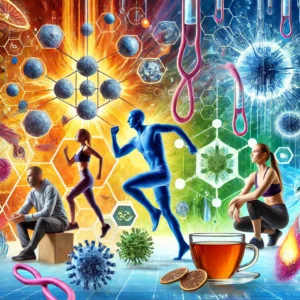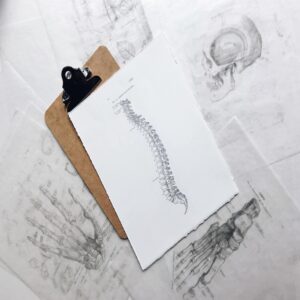FREE SAME DAY SHIPPING ON ALL ORDERS BEFORE 4PM EDT
We’ve all heard of the “biological clock”, otherwise called the circadian rhythm: that internal clock that governs our sleep patterns, hormones, body temperature, and eating habits. Human beings aren’t alone – animals and plants (even some germs!) are programmed with circadian rhythms, too. Circadian rhythms are so crucial to our wellbeing that anomalies from its natural cycle are linked to diseases like diabetes, heart disease, and depression. Getting good sleep, knowing your rhythm, and understanding what might throw it off can engender a healthier, happier life.
How circadian rhythms work
Circadian rhythms are governed by the suprachiasmatic nucleus, a clump of 20,000 nerve cells in your hypothalamus. When this region of your brain detects daylight fading, it signals the pineal gland to secrete melatonin, a hormone that makes us sleepy. When daylight emerges, the pineal gland gradually reduces the amount of melatonin produced.
Largely driven by your genetics, circadian rhythms are also affected by environmental stimuli. Picture this: it’s close to your bedtime, but you can’t get enough of Reels on Instagram, so you continue to use your phone when you really should be asleep. Although we’ve all been there, the blue light emitted from your phone signal to your brain that it’s still daytime and you should stay awake.
Early Bird or Night Owl?
We’re all different. Our personal circadian rhythms, or chronotypes, can vary, but, generally, your chronotype might be strikingly similar to someone in your family.
There are two general chronotypes:
- Early birds: You find it easy to start your day in the morning. You feel the most energy early in the day.
- Night owl: You have a hard time waking up in the morning, and you’re less alert early in the day. But as the sun starts to set, you feel more energized.
What to do if my circadian rhythm is out of sync?
Take charge of your circadian rhythm to get it into perfect harmony by making these small adjustments to your lifestyle:
- Drink tea – Tea is a phytochemical-rich beverage that helps reduce inflammation, which affects the functioning of your hypothalamus. Further, herbal teas, specifically cultivated for sleep induction, help tea lovers relax, ease muscle and joint pain, feel less anxious, and most importantly, want to sleep. See how we help you get your sleep back on track!
- Sleep – Sleep more a bit obvious, eh? Fix your sleep hygiene by having a consistent sleep schedule, sleeping for 7-9 hours a night, and lowering sleep debt.
- Screen time – Shut off screens at least an hour before sleeping. Any light coming into your eyes signals to your brain to stay awake and alert, so try to shut off all artificial lights. Try using blackout curtains or use a sleep mask to block out any additional light.
Parting thoughts
You aren’t a prisoner to your chronotype; anyone can create a flexible enough rhythm to fit their personal needs. For example, if you want to be more of a morning person, try to wake up 10-15 minutes earlier than usual for a week and gradually increase how much earlier you rise over the next few weeks.
With these few changes to your lifestyle, you can start living in harmony with your natural sleep cycle, stay well rested, and enjoy all that life has to offer.
Which teas are right for me?
Ready to stay healthy and live your best life? Take our free quiz and we’ll build a box of teas that are specifically meant to serve you and your needs. No compromises.
With warmth,
Akash




